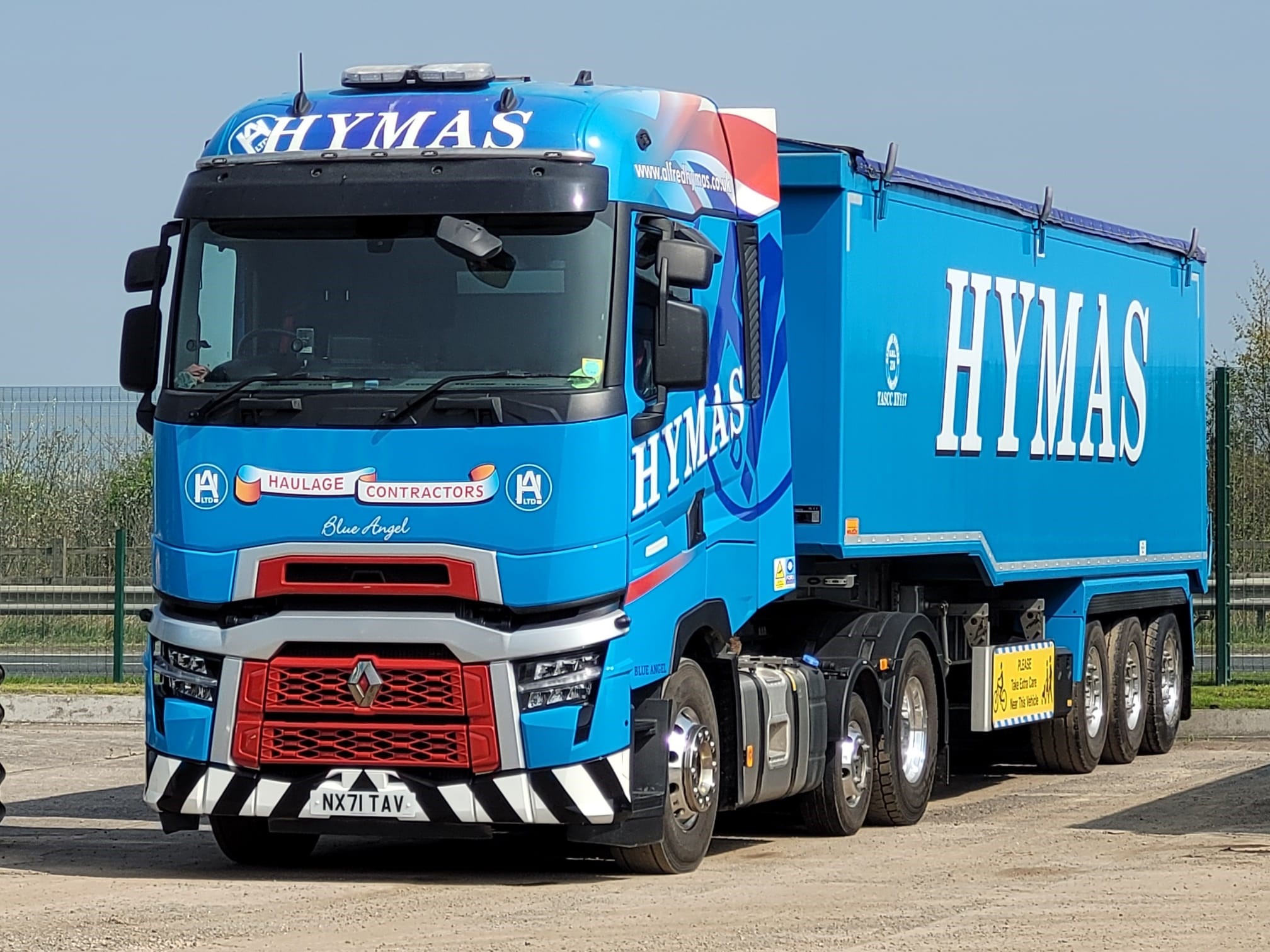Stewart Hymas, Managing Director of Alfred Hymas, runs a company that has been active in bulk transport for the agricultural and construction sectors since 1907. With a fleet of 75 vehicles, Alfred Hymas is taking steps towards more sustainable transport, including the use of biofuels such as B30.
I – Stewart Hymas – am the Managing Director of a company that has been operating since 1907, focusing primarily on bulk haulage to support the agricultural and construction industries. Our company employs 120 staff and currently operates 75 vehicles. In addition to our transport services, we run a small farm that spans 1,200 acres and includes a herd of 250 beef cattle, growing crops such as wheat, barley, and oilseed rape.
We have made some progress in reducing our carbon footprint, particularly by exploring the use of biofuels like B30. While we have worked alongside Argent to identify ways to reduce emissions, our customers primarily focus on price, which has limited the push for major changes. Most of our clients are not particularly driven by carbon reduction; they often prefer immediate cost savings. Although we’ve looked into electric trucks and running on HVO, there hasn’t been a strong financial commitment from our customers to support these initiatives.
Our commitment to reducing our carbon footprint is largely customer-led. The transport industry is highly competitive, and any initiatives we undertake must be commercially viable. If we were to switch to more expensive biofuels without customer backing, it could jeopardise our ability to trade effectively. We have to balance environmental responsibility with the economic realities of our market.
In terms of performance, we’ve found that switching to biodiesel blends like B20 or B30 does not significantly impact engine performance. Our drivers have reported no noticeable changes, and we monitor fuel economy without seeing significant fluctuations, which indicates that biodiesel blends operate interchangeably with traditional diesel.
We typically keep our trucks for about ten years, and we ensure that older vehicles receive the same level of maintenance as newer ones. Since we started using biodiesel blends, we haven’t encountered significant problems with fuel systems or injectors. We regularly clean our bulk storage tanks to prevent any issues, and the quality of biodiesel has improved over the years, contributing positively to vehicle performance and longevity.
We have our own facilities that allow us to store up to 120,000 litres of biofuel on-site. This infrastructure means we don’t face many logistical challenges; we can easily refuel our fleet without needing specialised equipment. However, companies lacking similar storage facilities may struggle to obtain higher blends of biodiesel, as these are not readily available at roadside stations.

While I would like to run our entire fleet on low-emission fuels, the reality is that most competitors are still using B7, making it difficult to transition. Scaling up will require either strong customer demand or new legislation mandating higher blends. Currently, our decisions are driven by the need for commercial viability, and any shift in fuel use must be financially supported by our clients.
We aim for a 26% reduction in carbon emissions when using B30. However, we don’t have specific environmental goals set in stone; our approach to reducing our carbon footprint is largely dictated by customer requests. The decision to use biodiesel is often based more on commercial factors rather than strictly environmental ones.
Since we manage our own maintenance, we haven’t faced issues regarding warranty claims related to fuel type. Manufacturers generally recommend using fuels like B7 or B10, but we have not encountered any problems, and we would contest any claims against us.
Having our own storage facilities means we can store and manage large quantities of biofuel without any special equipment. However, companies without such infrastructure may find it challenging to source higher blends of biodiesel.
Initially, we found that B30 was slightly cheaper, saving us about 1% on fuel costs. Overall, the costs associated with using biodiesel are negligible since we do not face additional maintenance burdens, and fuel economy has remained stable.
Ideally, I’d love to transition our fleet to run on low-emission fuels, but as long as our competitors are primarily using B7, we have to be pragmatic. Scaling up depends on customer demand or legislative changes that promote higher blends. The industry tends to respond to price pressures rather than strictly environmental motivations.
I believe that the conversations surrounding biofuels need to focus on both environmental benefits and the economic viability of such initiatives. While we all strive for a greener future, it’s crucial that these efforts align with market demands and the financial realities of the industry.